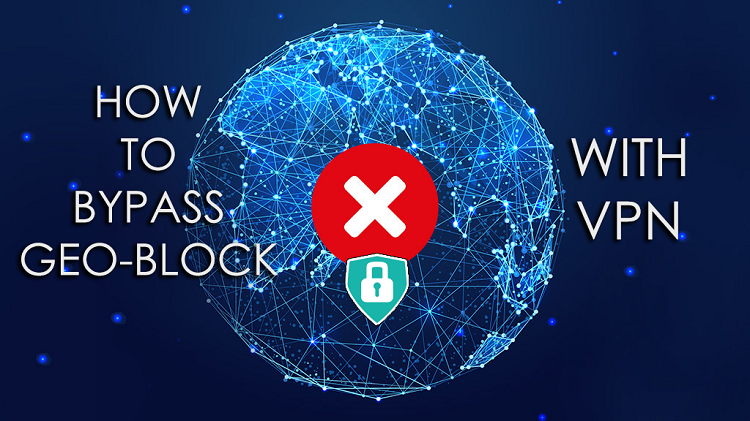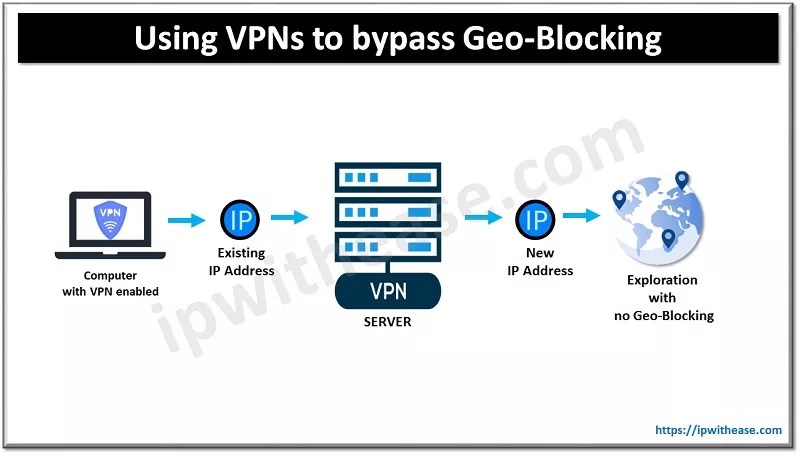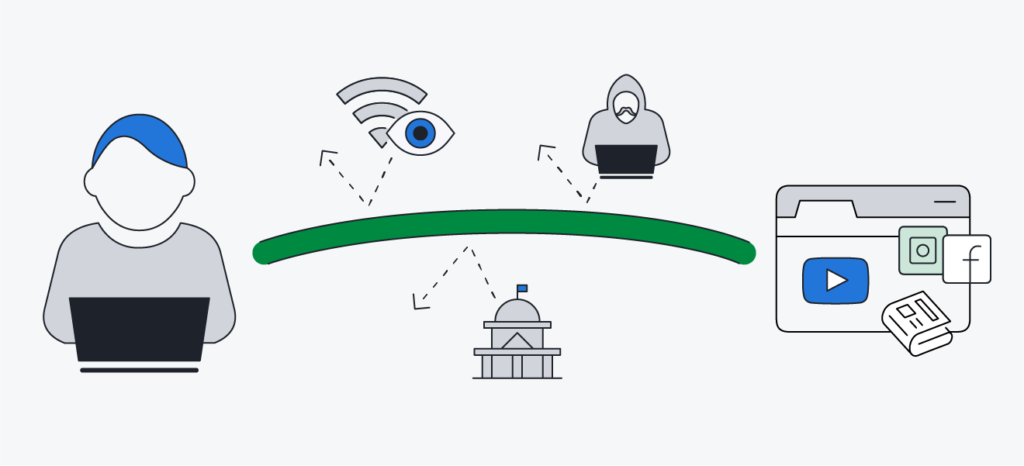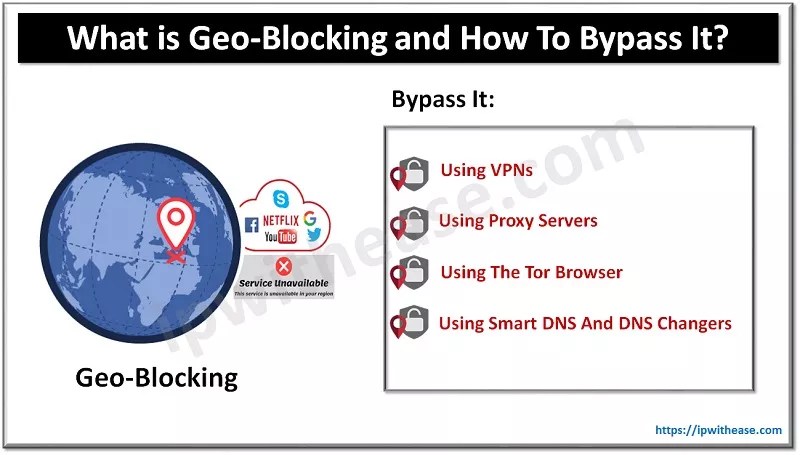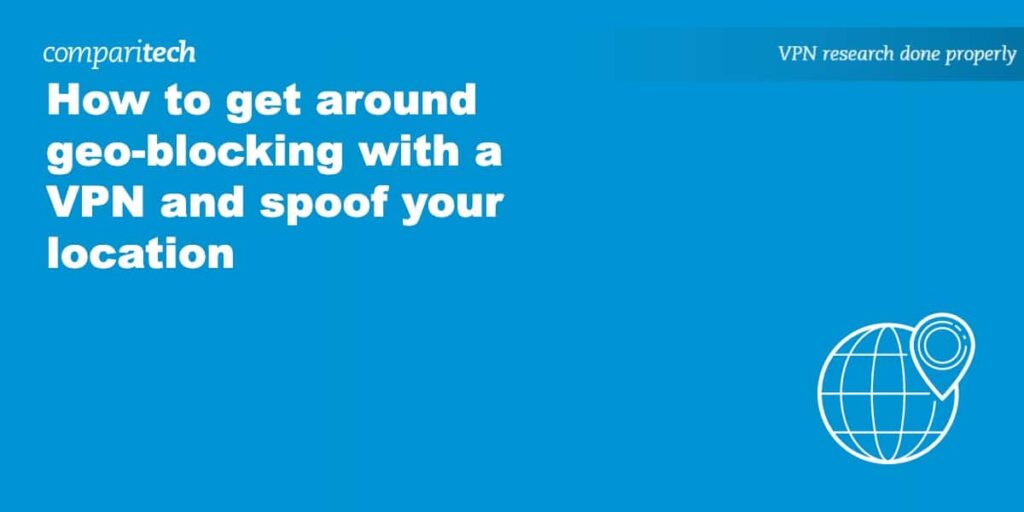Bypass Geo-Blocking VPN
Imagine being able to access any website or streaming platform, regardless of your location. With a Bypass Geo-Blocking VPN, you can now say goodbye to limitations and hello to endless online possibilities. Whether you’re a gaming enthusiast looking to play region-locked games or a frequent traveler wanting to watch your favorite shows from anywhere in the world, this revolutionary technology has got you covered. In this article, we will explore the ins and outs of Bypass Geo-Blocking VPNs, shedding light on their history, applications, and how they cater to both beginners and advanced users. Get ready to unlock a whole new level of internet freedom!
What is Geo-Blocking?
Definition of Geo-Blocking
Geo-blocking refers to the practice of restricting access to online content based on the user’s geographical location. This means that certain websites, services, or content may be inaccessible to users in specific countries or regions. Geo-blocking is implemented by identifying the IP address of the user and comparing it to a database of blocked or allowed locations.
Reasons for Geo-Blocking
There are several reasons why geo-blocking is used by online platforms and content providers. One of the main reasons is regional licensing agreements. For example, certain movies or TV shows may have been licensed to different streaming services in different countries, leading to the content being available in one country but not in another. Additionally, geo-blocking can be used to comply with local regulations or censorship laws, protect copyrights, manage traffic, or control pricing strategies.
Examples of Geo-Blocking
Geo-blocking can be observed in various online platforms and services. Streaming services like Netflix, Hulu, and BBC iPlayer often enforce regional restrictions, making certain shows or movies available only in specific countries. Online retailers may also use geo-blocking to restrict sales or product availability based on the customer’s location. Similarly, some news websites or social media platforms may be limited to certain countries due to local regulations or censorship policies.
Understanding VPNs
Definition of VPN
A Virtual Private Network (VPN) is a privacy and security tool that allows you to create a secure connection to another network over the internet. By using encryption and tunneling protocols, VPNs provide a safe and private pathway for your internet traffic, helping to protect your data and online activities from prying eyes.
How VPNs Work
When you connect to a VPN, your internet traffic is encrypted and routed through a VPN server located in a different location than your own. This helps to mask your IP address and makes it appear as though you are accessing the internet from the location of the VPN server. VPNs create a secure “tunnel” for your data to pass through, preventing third parties from intercepting or monitoring your online activities.
Benefits of Using VPNs
Using a VPN offers several benefits beyond bypassing geo-blocking. Firstly, VPNs enhance your online privacy by encrypting your internet traffic, making it difficult for anyone to spy on your activities. VPNs also provide security against potential hackers or malicious actors, especially when using public Wi-Fi networks. Additionally, VPNs can help you access region-locked content, bypass censorship, and protect your personal information from being harvested by websites or online services.
How Geo-Blocking Works
Concept of Geo-Blocking
Geo-blocking relies on the identification of a user’s IP address to determine their location. IP addresses are typically assigned based on geographical regions, and by comparing the user’s IP address to a database of blocked or allowed locations, online platforms can determine whether to grant or restrict access to specific content. This is done by either denying access completely or redirecting users to region-specific versions of a website or service.
Methods Used for Geo-Blocking
There are several methods employed to implement geo-blocking. One common method is IP-based blocking, where a website or service can deny access to users based on their IP address. Another approach is DNS-based blocking, where the Domain Name System (DNS) is used to redirect or restrict access to certain websites or content. Additionally, some platforms use browser fingerprinting techniques or geolocation data to determine a user’s location and enforce geo-blocking.
Technologies Behind Geo-Blocking
Various technologies are utilized in implementing geo-blocking. The most common technology is geolocation, which uses the user’s IP address to determine their approximate location. This is achieved by mapping IP addresses to specific regions using databases maintained by different organizations. Content Delivery Networks (CDNs) are also important in delivering region-specific content by strategically placing servers in different locations. Additionally, deep packet inspection and traffic analysis techniques can be employed to detect and block traffic from specific regions.
Introduction to Bypassing Geo-Blocking
What is Geo-Blocking Bypass?
Geo-blocking bypass, as the name suggests, refers to the act of circumventing geo-blocking measures and accessing restricted content or services from anywhere in the world. This can be achieved through various methods, with the use of VPNs being one of the most effective and popular approaches.
Importance of Bypassing Geo-Blocking
Bypassing geo-blocking is important for several reasons. Firstly, it allows individuals to access content that may be blocked in their country due to licensing restrictions or censorship. This ensures that users can freely access the information and entertainment they desire without any unnecessary limitations or barriers. Bypassing geo-blocking also promotes global connectivity, as it enables individuals to connect and interact with people, services, and resources from different parts of the world.
How Bypassing Geo-Blocking with VPNs Works
VPNs are commonly used to bypass geo-blocking by allowing users to connect to servers located in different countries. By connecting to a VPN server in a region where the desired content is accessible, users can effectively change their virtual location and make it appear as though they are browsing from that specific region. This tricks websites, services, or platforms into providing access to content that would otherwise be blocked in the user’s actual location.
Choosing a VPN for Bypassing Geo-Blocking
Factors to Consider When Selecting a VPN
When choosing a VPN for bypassing geo-blocking, several factors should be considered. Firstly, it is crucial to evaluate the VPN provider’s privacy and logging policies to ensure that your data and online activities are not being monitored or stored. The server network and locations offered by the VPN are also important, as a wider range of server locations provides more options for bypassing geo-blocking. Additionally, connection speeds and bandwidth limitations, customer support, and affordability are all factors to take into account.
Features to Look for in a VPN for Bypassing Geo-Blocking
An effective VPN for bypassing geo-blocking should have certain features. Strong encryption protocols, such as OpenVPN or IKEv2, ensure that your internet traffic remains secure and private. The ability to connect to multiple servers in different countries is also essential for accessing a wider range of geo-blocked content. High connection speeds and unlimited bandwidth are crucial to ensure a smooth and enjoyable browsing experience. Finally, a user-friendly interface and compatibility with various devices and operating systems enhance convenience and usability.
Popular VPNs for Bypassing Geo-Blocking
Several VPN providers have established a reputation for effectively bypassing geo-blocking. NordVPN is a popular choice, offering a vast network of servers across the globe and advanced security features. ExpressVPN is renowned for its fast speeds, wide server selection, and user-friendly interface. Another reliable option is Surfshark, which provides unlimited simultaneous connections and strong encryption. Other notable VPNs worth considering include CyberGhost, Private Internet Access, and VyprVPN.
Steps to Bypass Geo-Blocking with VPN
Step 1: Select and Install a VPN
The first step to bypassing geo-blocking with a VPN is to select a suitable VPN provider that meets your requirements. Research different providers, read reviews, and compare their features before making a decision. Once you have chosen a VPN, download and install the VPN client on your device.
Step 2: Connect to a VPN Server in a Different Country
After installing the VPN client, open the application and choose a server located in a country where the desired content is accessible. Most VPN clients provide a list of available servers and their respective locations. Click on the desired server and establish a connection.
Step 3: Access Blocked Content
Once you are connected to the VPN server, your internet traffic will be routed through that server, making it appear as though you are browsing from the chosen country. You can now access the content that was previously geo-blocked. Simply open your web browser or streaming service, and the blocked content should now be accessible.
Benefits of Using a VPN to Bypass Geo-Blocking
Access to Restricted Content
The primary benefit of using a VPN to bypass geo-blocking is gaining access to restricted content. Whether it is streaming services, websites, or online platforms, a VPN allows you to overcome geographical limitations and enjoy content that might otherwise be unavailable in your location.
Enhanced Privacy and Security
Using a VPN also enhances your privacy and security. By encrypting your internet traffic and masking your IP address, a VPN prevents third parties, such as hackers or government surveillance, from monitoring your online activities. This adds an extra layer of protection, particularly when accessing the internet in public Wi-Fi networks or countries with strict censorship.
Improved Online Performance
Contrary to popular belief, using a VPN may actually improve your online performance in some cases. By connecting to a server that has a better network infrastructure or is located closer to a content delivery network, you can experience faster download and streaming speeds. This can be beneficial when accessing certain geo-blocked services that may offer better performance in specific regions.
Limitations of Bypassing Geo-Blocking with VPNs
Potential Legal and Ethical Concerns
While bypassing geo-blocking with a VPN is generally legal in most countries, there can be legal and ethical concerns depending on the specific content or services being accessed. It is important to respect the rights of content owners and adhere to copyright laws. Additionally, some services actively detect and block VPN traffic, making it a violation of their terms of service.
Decreased Speed and Performance
Using a VPN can sometimes result in decreased internet speeds and performance. The encryption and rerouting of your internet traffic can introduce some latency and reduce the overall speed of your connection. The impact on speed may vary depending on the VPN provider, server location, and your own internet connection.
Compatibility Issues
Certain websites or platforms may implement more advanced techniques to detect and block VPN traffic, making bypassing geo-blocking more challenging. Additionally, not all VPN providers are compatible with all devices and operating systems. It is important to choose a VPN that supports your devices and provides detailed setup instructions or dedicated apps for your preferred platform.
Tips for Successful Bypassing of Geo-Blocking with VPNs
Choose a Reliable and Trustworthy VPN Provider
To ensure successful bypassing of geo-blocking with a VPN, it is crucial to choose a reliable and trustworthy VPN provider. Look for providers with positive customer reviews, a strong reputation, and a track record of effectively bypassing geo-blocking. Avoid free VPNs, as they often lack the necessary features and may compromise your privacy.
Connect to Servers in Countries with Less Stringent Geo-Blocking
When selecting a VPN server to connect to, consider choosing countries with less stringent geo-blocking measures. Some regions may have fewer restrictions or are known for being more open in terms of online content. By connecting to servers in these regions, you increase your chances of accessing a wider range of geo-blocked content.
Ensure Proper Configuration and Usage of VPN
Proper configuration and usage of your VPN are essential for a successful bypassing of geo-blocking. Follow the instructions provided by the VPN provider to ensure that your device is properly configured to use the VPN. Additionally, always connect to the VPN before attempting to access geo-blocked content to ensure that your connection is properly established and your virtual location is changed.
Conclusion
Bypassing geo-blocking with VPNs has become an increasingly popular and effective way to access restricted content and overcome online limitations. By using VPN technology, individuals can change their virtual location, mask their IP address, and bypass the barriers imposed by geo-blocking. This enables users to access region-locked content, overcome censorship, and enjoy a more open and global online experience. However, it is essential to choose a reputable VPN provider, be aware of any legal and ethical concerns, and consider the limitations and potential implications of bypassing geo-blocking. VPNs offer a powerful tool to enhance privacy, security, and online freedom, making them an invaluable resource for those seeking to navigate the ever-expanding digital landscape.
